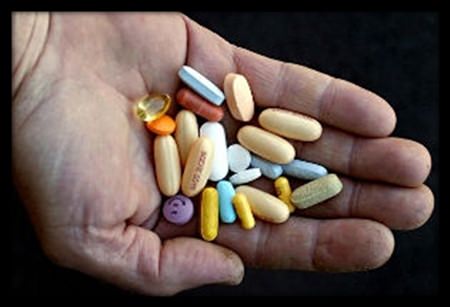The journeyman pro had been plying his trade on US and Asian golf courses for 12 years. This year he was back on the PGA Tour after a three-year break spent on the Web.Com Tour. On this particular Thursday he had just completed the round of his life – an 8-under par 64. Being the last group on the course, he knew he had the overnight lead. He walked off the 18th with a feeling he had been chasing all his adult life. He signed his card. Then he was asked to follow some guy with a clipboard and pee in a bottle.
Unfortunately the pro in question had relieved himself immediately after hitting his tee-shot on the last. Try as he might, the golfer simply couldn’t produce the required sample. Under the rules, this meant the tester is required to follow the golfer around, wherever he goes, for the next 90 minutes. That being the time-frame within which the tester must obtain the sample.
 PEDs – will they help your golf game?
PEDs – will they help your golf game?
The journeyman’s cause for celebration, the round of his life, deserved some form of recognition. A rare and special moment was being denied the golfer because of a drug-testing programme that was not only inflexible, but, some argue, a waste of time and money.
The PGA Tour began its anti-doping drug-testing policy on 1 July 2008. Two weeks later, following the epic 18-hole US Open playoff between Rocco Mediate and Tiger Woods at Torrey Pines, Mediate labelled the new drug-testing policy, “the biggest joke in the history of the world.”
In a recent issue of Golf Magazine, six-time PGA Tour winner, Brandt Snedeker, agreed. “I would do away with drug-testing in a heartbeat. It’s a complete waste of time and money. Steroids are not going to help you hit a golf ball.”
Maybe not, but perhaps they can help calm your nerves and reduce your pulse-rate when coming down the stretch with a share of the lead. Beta blockers can weaken the effects of stress hormones the body produces in anxiety-inducing situations.
The Tour’s drug policy came under scrutiny when Hall-of-Famer Vijay Singh admitted to using deer-antler spray, which contains IGF-1, an insulin-like growth factor that at the time was on the Tour’s list of banned substances. After investigating Singh’s actions, the Tour dropped the case when the World Anti-Doping Agency (WADA) removed deer-antler spray from its banned list.
This publicity led to others, such as Greg Norman, calling for more stringent anti-doping measures, including blood-testing (certain substances, such as IGF-1 and other human growth hormone cannot be detected in urine samples). “You only have to look at what happened to Vijay Singh to know the drugs issue is there,” Norman said.
Not according to Snedeker. “We’ve had drug testing for six years on the PGA Tour and we’ve had two cases of people getting caught doing it,” Snedeker said in the interview. “One of them was Doug Barron, who had low testosterone, who didn’t go through the proper channels and ended up testing positive (for anabolic steroid testosterone and propranolol, a beta-blocker that calms nerves). The other was Vijay Singh, who took deer-antler spray, which may or may not be a performance-enhancing drug.”
Snedeker said he also finds little merit in the argument that Tour pros might be tempted to take substances to help settle their nerves or accelerate recovery time between injuries.
“I don’t think it’s ever been a problem in golf,” he said of PED use. “I don’t think it ever will be a problem in golf. The PGA Tour is different from football and every other sport in that we call penalties on ourselves. The worst thing you can be called in golf is a cheater. Trust me, if there’s a guy that gets caught doing anything a couple of times, whether it be bending a rule, we know about it, and we let him know about it. You don’t want to be labelled ‘that guy.’
Earlier this year, Chris DiMarco said drug testing is “the dumbest thing we do on Tour.”
Among the pros who have voiced support of the program are Padraig Harrington, Jerry Kelly, and Joe Ogilvie.
“I’d like to say we’re a little different in golf, but testing is something that’s a necessary evil,” Ogilvie was quoted as saying earlier this season. “If everybody was Jack Nicklaus, we wouldn’t have to drug test everyone, but everyone isn’t.”
The sport has often been depicted as being “lenient” in its anti-doping policy, particularly in Europe, as Justin Rose confirmed. “I have never been tested on the European Tour,” Rose said. “I have been on the PGA Tour, many times. I would say four times a year would be average.”
David Garland, the European Tour’s director of operations, says that when the Tour does test, it targets 10 to 15 per cent of the field and also liaises with the PGA Tour concerning who they have tested.
As neither Tour uses blood tests, there is an argument that says they are not really serious about drugs. Other cynics simply point to golf’s re-admittance to the Olympics as the sole reason a drugs policy exists.
They’ve never had an effect on my scores.
Golfnutter



